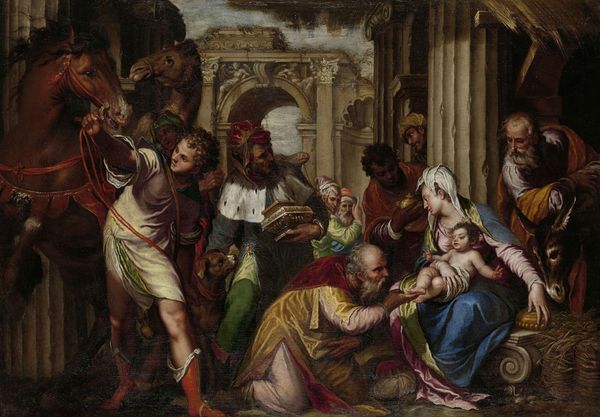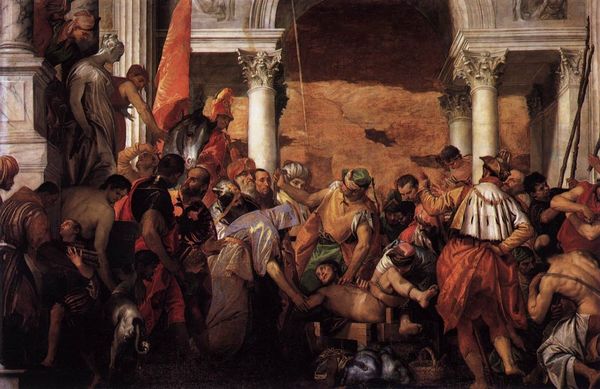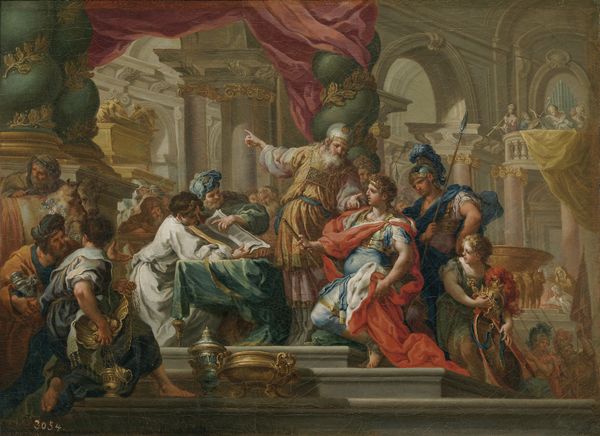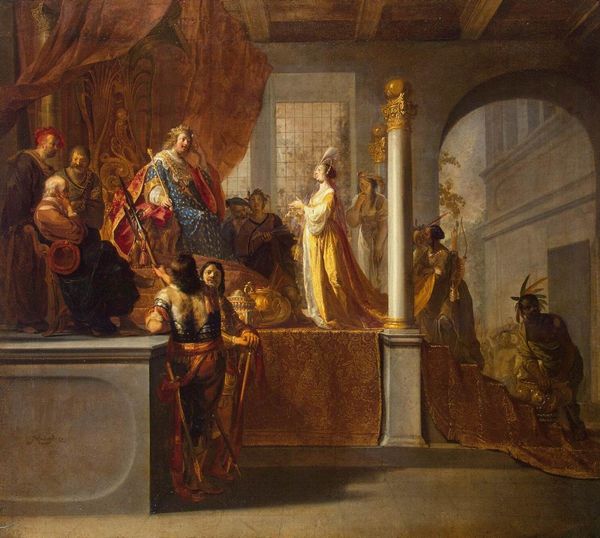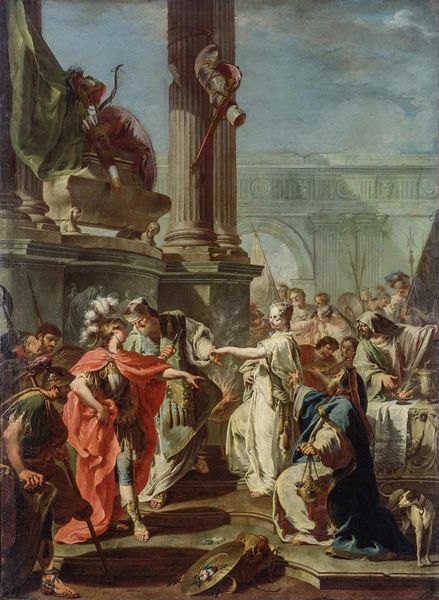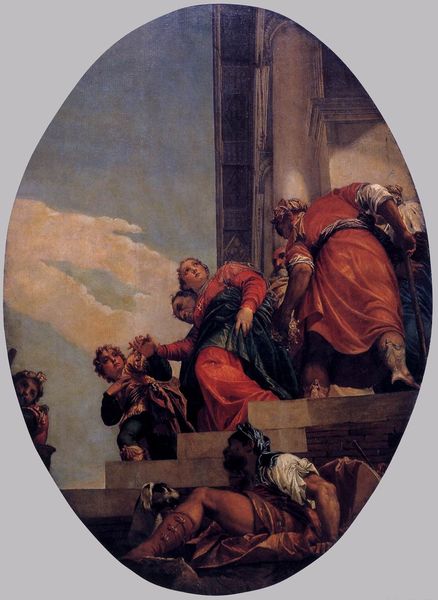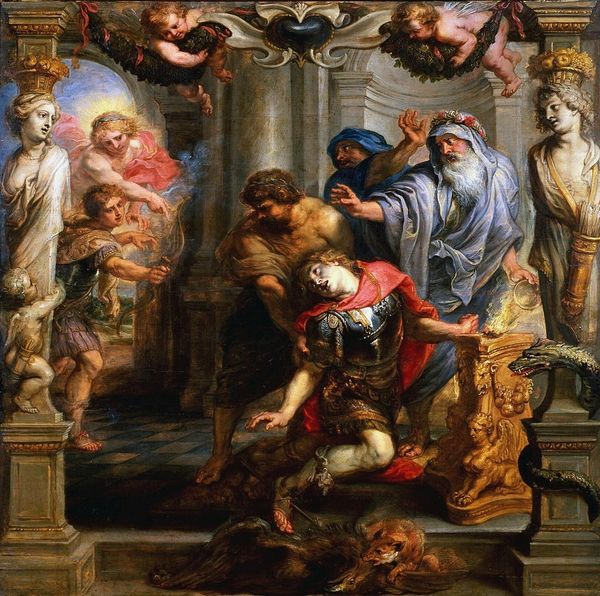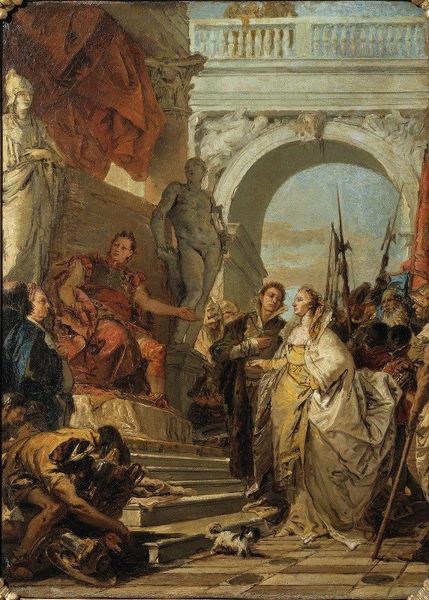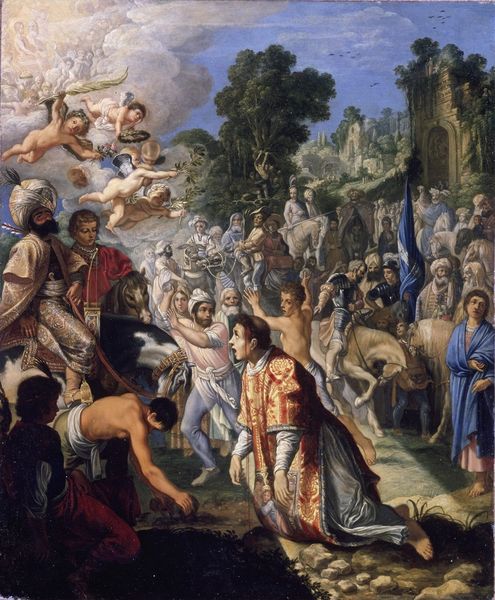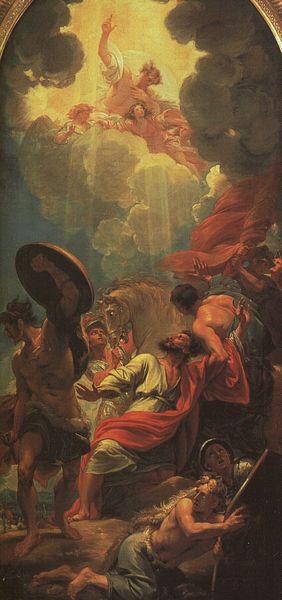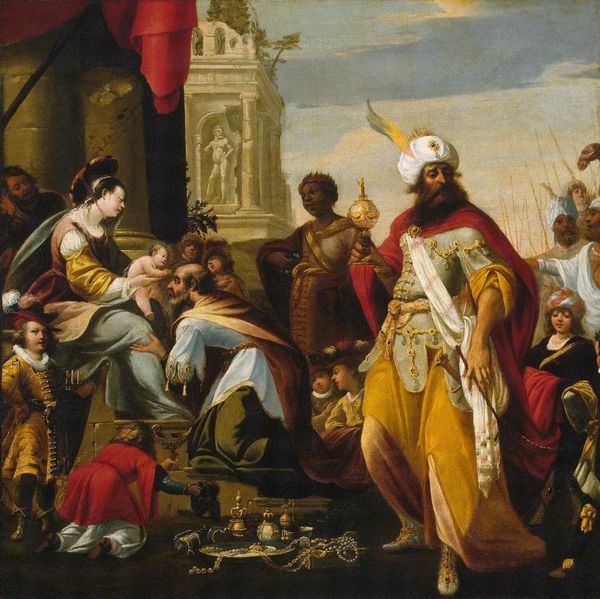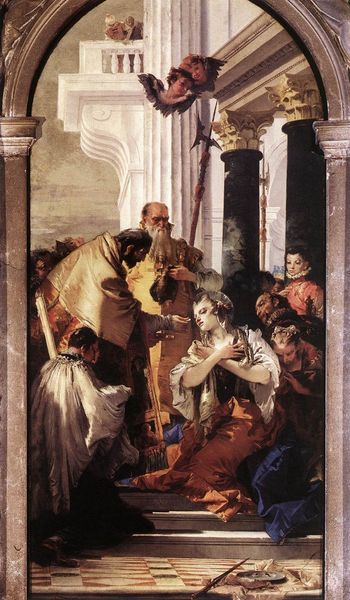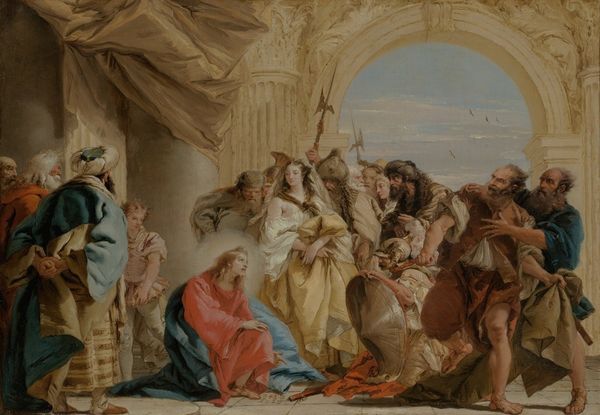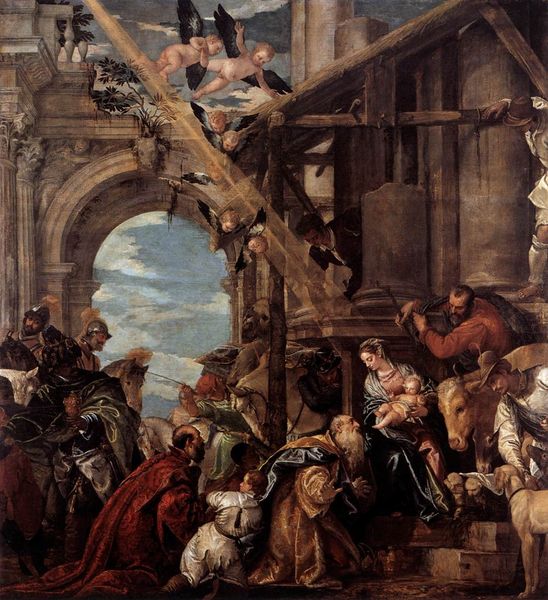
painting, oil-paint
#
portrait
#
venetian-painting
#
allegory
#
painting
#
oil-paint
#
mannerism
#
figuration
#
oil painting
#
christianity
#
genre-painting
#
history-painting
#
academic-art
Dimensions: 45 x 35 cm
Copyright: Public domain
Curator: What strikes me immediately is the density of the composition. A kind of organized chaos in the play of light and shadow. Editor: Indeed. Here we have Paolo Veronese's "Adoration of the Magi", painted around 1570. It is currently held in the Hermitage Museum in St. Petersburg. Veronese, working in Venice, would certainly have considered the economics of pigment availability. Curator: The formal arrangements create a complex interplay of lines and masses. Notice how the artist uses the architectural elements in the background to frame the figures, drawing our eye towards the Virgin and Child. Editor: The luxury fabrics worn by the Magi and other figures denote a significant investment in the painting and what appears to be an emphasis on global trade routes to access such materials during the period. How the artist's workshop procured and deployed them matters. Curator: True, and look at the exquisite detail of the fabrics. The textures are amazing and the figures are almost sculptures. Consider, also, the symbolic deployment of colour. Editor: Are we meant to interpret this, the meeting of such rich, earthly colours with the spiritual subject, as somehow redemptive or transgressive in intent? It invites discussion of wealth inequality even now. Curator: Perhaps. But there's such a contrast in style; note how classical architecture becomes almost stage dressing. Editor: An apt metaphor. Veronese’s piece creates not just art, but cultural and material meaning too, in its construction, and display. It allows modern audiences to read into it. Curator: Precisely! There's an energy that springs from that tension, which perhaps is one reason why his works speak so compellingly even now. Editor: Yes, this interplay, the material wealth represented meets symbolic, cultural representation and the artistic treatment that makes it what it is, invites such dialogue.
Comments
No comments
Be the first to comment and join the conversation on the ultimate creative platform.
